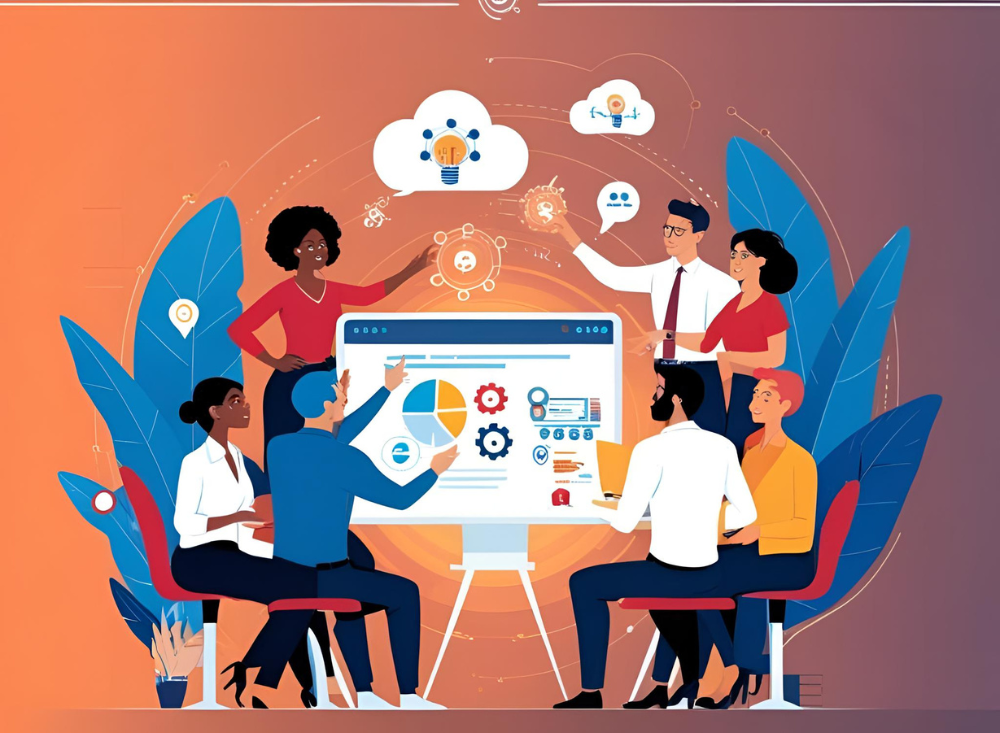
Personalization Made Attainable with AI
In the competitive B2B landscape, personalization is no longer a luxury—it’s an expectation. Buyers expect tailored experiences that address their unique pain points, goals, and business contexts. However, personalization at scale has historically been a daunting challenge for marketers due to fragmented data, resource constraints, and the complexity of multi-touch buyer journeys.
Enter Artificial Intelligence (AI). With the evolution of generative AI and advanced machine learning models, personalization is now more accessible and attainable than ever before. These technologies can process massive datasets, uncover buyer intent, and generate tailored messaging in real-time—bridging the gap between high expectations and limited resources.
How Generative AI Supports Personalization
Generative AI is reshaping how B2B marketers approach personalization. Unlike traditional rule-based systems, generative models (like GPT or LLM-based platforms) can:
- Create adaptive content: Generate email copy, landing page text, or ad headlines tailored to different buyer personas, industries, or funnel stages.
- Predict buyer intent: Use behavior patterns and engagement data to predict which products or solutions are most relevant to a prospect.
- Automate decision-making: Recommend the next best actions, content, or outreach strategies based on historical performance and real-time interactions.
This enables marketers to deliver deeply relevant experiences without reinventing the wheel for every campaign or segment.
AI Raises Expectations
AI doesn’t just help marketers personalize better—it raises the bar for what prospects expect. With B2C giants like Amazon and Netflix delivering seamless, AI-powered experiences, B2B buyers increasingly expect similar relevance in their professional interactions.
This shift puts pressure on marketers to deliver precision-targeted messaging and campaigns. One-size-fits-all content and batch-and-blast email strategies are fast becoming obsolete. Instead, buyers seek:
- Relevant product recommendations
- Personalized outreach from sales reps
- Tailored content journeys based on industry, job role, or stage in the funnel
AI provides the infrastructure and insights to meet these elevated expectations.
Majority of B2B Marketers Plan to Use AI for Personalization
A recent industry study found that over 70% of B2B marketers plan to use AI for personalization in the next 12 months. The key drivers include:
- Efficiency: AI can significantly reduce the time spent on audience segmentation, content creation, and A/B testing.
- Accuracy: Machine learning algorithms improve over time, offering more precise targeting and personalization.
- Scale: AI enables 1:1 personalization at a scale that would be impossible to achieve manually.
Forward-thinking marketers are already embedding AI into their CRM, CMS, and marketing automation systems to create more intelligent workflows and personalized experiences.
Steps to Successful AI-Powered Personalization
To harness AI effectively, B2B marketers should follow a structured approach:
- Define personalization goals: Are you improving email open rates, increasing demo requests, or enhancing account engagement?
- Audit your data ecosystem: Ensure you have access to high-quality, organized first-party data.
- Choose the right AI tools: Evaluate AI tools for content generation, lead scoring, dynamic content delivery, and intent prediction.
- Test and iterate: Use A/B testing frameworks to refine AI-driven content and strategies.
- Ensure alignment with sales: Personalization is most effective when marketing and sales teams share insights and work from the same data sources.
Untapped Opportunity in First-Party Data
First-party data is a goldmine for personalization. It includes everything from website behavior, email engagement, CRM data, purchase history, and customer support interactions. Yet, many B2B marketers still underutilize it due to silos and poor data hygiene.
In an era of tightening privacy laws and cookie deprecation, first-party data is also becoming the most reliable and compliant source of customer insight. When used with AI, it can power dynamic segmentation, predictive analytics, and hyper-personalized messaging.
Leveraging First-Party Data for Better Personalization
Here’s how B2B marketers can unlock the value of first-party data using AI:
- Intent signals: Track actions such as whitepaper downloads or webinar signups to identify interest areas and personalize outreach accordingly.
- Behavioral triggers: Use site behavior to automate real-time engagement—for example, serving specific case studies based on pages visited.
- Customer journey mapping: Identify drop-off points or friction in the funnel and serve targeted content to re-engage prospects.
- Account-based intelligence: Enrich account profiles with firmographic and behavioral data to create more relevant ABM campaigns.
AI can stitch this data together into a cohesive picture, giving marketers the context needed to engage prospects meaningfully.
Key Actions for B2B Marketers in the AI Era
To stay competitive, B2B marketers should:
- Invest in AI literacy: Educate teams on the capabilities and limitations of generative AI.
- Break data silos: Ensure seamless integration across marketing, sales, and service platforms.
- Prioritize personalization strategies: Embed personalization KPIs into broader marketing objectives.
- Maintain ethical data practices: Ensure transparency and compliance in how customer data is used for personalization.
These actions will not only future-proof your marketing strategies but also elevate your brand’s ability to connect with decision-makers authentically.
AI-Powered Personalization in Action
Consider a B2B SaaS company targeting mid-sized financial firms. Using AI, they:
- Identify accounts that recently visited their pricing page multiple times
- Score these leads higher based on predictive intent models
- Automatically trigger a personalized email from a sales rep with a financial-services-specific case study
- Adapt the homepage banner for repeat visitors with tailored messaging about compliance benefits
The result? Higher engagement, shorter sales cycles, and more meaningful relationships with prospects.
Final Thoughts
AI has transformed personalization from a high-effort aspiration to a scalable, data-driven reality. For B2B marketers, it opens the door to delivering consistent, relevant, and timely interactions—at scale and with precision.
The future of B2B marketing belongs to those who not only adopt AI but align it with a clear personalization strategy powered by quality first-party data. By embracing AI thoughtfully, marketers can meet rising expectations, drive better outcomes, and stand out in an increasingly crowded digital landscape.